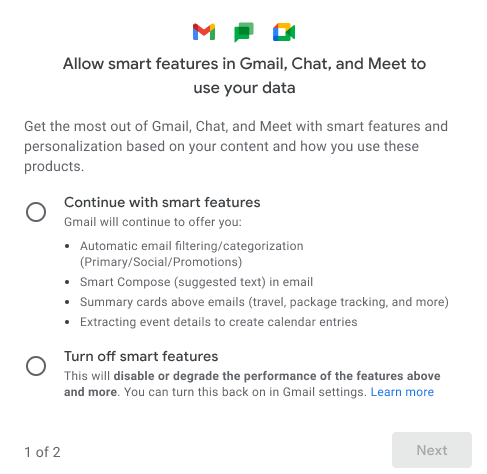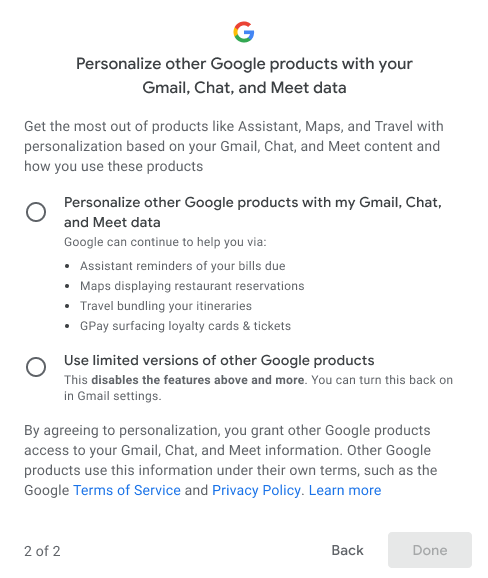
Earlier this year, Google announced that it would default to auto-deleting location and search data. Building on that, the company is introducing two settings to control “whether your data in Gmail, Meet and Chat can be used to offer ‘smart’ features in these and other Google products.”
The first preference determines whether you want to use Gmail with “smart features.” Today, this includes:
- Automatic email categorization into the Promotions, Social, and Primary inboxes
- Smart Compose
- Summary cards for shopping, travel reservations, and package tracking
- Calendar event creation from dates and other details in emails
This upcoming prompt asks users if they want to continue using those capabilities or turn them off entirely. Google warns that this will “disable or degrade the performance of the features,” and that it can be re-enabled at anytime.
If you decide not to use smart features and personalization, you will still be able to use Gmail and our other products.


Next is another new setting that determines whether Chat, Meet, and — primarily — Gmail data is used to personalize Assistant, Maps, Google Pay, and Travel. Having this enabled lets you “get the most out of products.” For example, Assistant has for a while now shown bill reminders, while Maps will display upcoming reservations and Google Pay automatically surfaces purchased tickets.
Otherwise, you’ll be using “limited versions of other Google products.” The company notes that “ads are not based on your personal data in Gmail, no matter which choice you make.”
You can disable many of these smart features today by going into the settings of individual apps. However, Google hopes that this two-page dialog in Gmail will simplify the management process. It also reflects user research and regulatory mandates.
What’s new is a clearer choice over the data processing that makes them possible. This new setting is designed to reduce the work of understanding and managing that process, in view of what we’ve learned from user experience research and regulators’ emphasis on comprehensible, actionable user choices over data.
These new Gmail settings will be available in the “coming weeks.”
Author: Abner Li
Source: 9TO5Google



